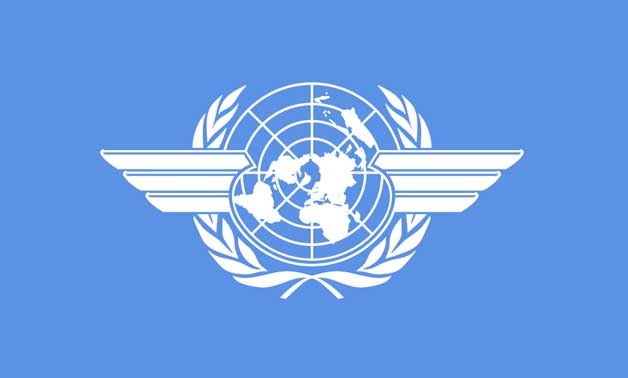
Flag of the International Civil Aviation Organization (ICAO)
CAIRO – 11 August 2017: The Board of the International Civil Aviation Organization (ICAO) refused to get involved in the Gulf dispute with Qatar, stressing that it has nothing to do with such political issues.
The ICAO has also turned down Qatar’s complaint against the measures adopted by the four Arab states calling to fight terrorism – including Egypt, Saudi Arabia, the UAE and Bahrain – as they closed their airspace for Qatari transportation.
At the recent extraordinary ICAO session held following a complaint from Qatar, the ICAO council chairman emphasized that that the organization focuses only on technical issues and avoids intervening in political matters.
The move was praised by Abdul Hakeem Al Tamimi, president of the General Authority of Civil Aviation (GACA), who noted that the airspace closures "have numerous cases of precedent" and that – to date – Qatar has raised no safety issues related to the restrictions.
In its resolutions, the council urged all member states of the ICAO to continue cooperation to enhance the safety, security, efficiency and sustainability of international civil aviation. It also appreciated the four Arab states for their spirit of cooperation during the special session.
The council also welcomed the commitment of the four Arab states to continue technical consultations under the umbrella of the ICAO to ensure the application of technical solutions, and it requested the secretariat to provide information on a regular basis, as well as to submit an updated report for consideration by the council at its next session.
To ensure safe and smooth air operations, the Arab quartet has granted the use of nine emergency routes for use by Qatari aircraft. The emergency routes are located in areas managed by the UAE and will be used to facilitate air navigation and ensure safety under the umbrella of the ICAO, which co-ordinates and oversees such agreements.
The nine routes include one over the Mediterranean that is managed by Egypt, which began operations on August 1.
Qatar’s relations with several Arab states have been strained since May 24 over a leaked statement, attributed to Qatari Emir Sheikh Tamim bin Hamad Al Thani, criticizing Gulf foreign policy with Iran, describing it as “unwise”.
On June 5, Egypt, Saudi Arabia, the UAE and Bahrain cut diplomatic ties with Qatar and imposed economic sanctions, accusing it of funding terrorism – a claim Qatar rejects. They also closed their airspace and seaports to Qatari vessels.
The Arab quartet issued 13 demands to Doha – then shortened to six principles - including closing Al Jazeera television, curbing relations with Iran and shutting a Turkish military base.

Comments
Leave a Comment